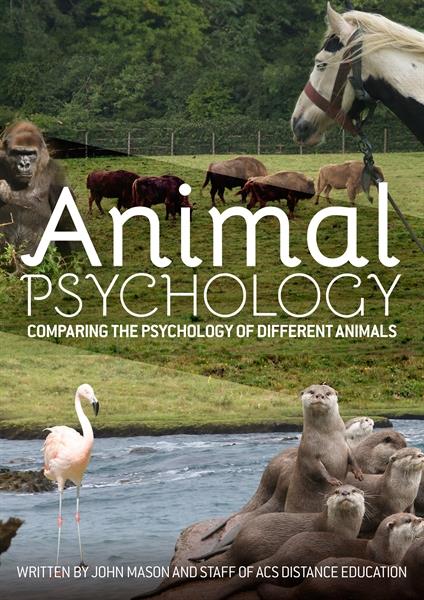There are millions of animal species on the planet that play an important role in biodiversity and food chain management. Understanding animal psychology and behaviour is not for everyone. This is a complex area that requires careful attention. It can help to identify specific disorders in an animal or species. This blog will provide more information about Animal Psychology and the related courses. It also lists universities that offer it.
What is an Animal Psychologist?
An Animal Psychologist works safely with animals and is an expert in their biology homework and behaviour. To diagnose significant disorders, they examine the cognitive processes of animals. This includes their phylogenetic and adaptive history as well as their development.

Role of an Animal Psychology
Animal psychologists have studied the lives of animals for centuries. They focused on their biology and the environment in which they live, as well as their interactions with people. As animal psychology has grown in popularity, this has changed. There are two types of animal psychology: theory and practice.
Animal psychologists conduct academic research to study how animals interact with each other (competitor groups, predators, prey, and the environment), and with humans. They are closer to naturalists than biologists. Researchers and academics may travel around the globe to observe animals in their natural habitats.
Animal psychologists are used at zoos and nature reserves to promote animal welfare and research. Animal psychology has been integrated into many zoos worldwide. They offer enrichment programs such as toys and fitness games as well as basic problem solving puzzles to help animals earn food. Because of concerns about animals’ mental health, this was possible. They can also find work in veterinary medicine, where they can treat both mental and physical illnesses. Animal psychologists assess each animal and develop a strategy that focuses on its psychological well-being.
How do you become an animal psychologist?
No matter if you are interested in Criminal Psychology or Educational Psychology, it is important to have the right knowledge to be able to build a career as an Animal Psychologist. This is a step-by-step guide to becoming an Animal Psychologist.
- STEP 1: Get a Bachelor’s degree
- STEP 2 – Gain work experience
- STEP 3 – Enrol in a Postgraduation Course
- STEP 4: Complete Internship/Apprenticeship
- STEP 5 – Obtain a license to practice
Courses in Animal Psychology
Numerous universities now offer a variety of courses in this emerging field of Science and Technology. These are some popular courses in Animal Psychology that you might want to consider.

Undergraduate Courses
Diploma of Higher Education in Animal Management (Pet Behaviour and Welfare).
- BSc in Animal Behaviour & Biology
- BSc (Hons.) Zoology and Animal Behaviour
- BSc (Hons.) Psychology of Human and Animal Behaviour
- FdSc Animal incredible science with Animal Behaviour
- BSc (Hons.) Animal Behaviour and Wildlife Conservation, Sandwich Placement
Postgraduate Courses
- MSc Animal Behaviour
- MSc in Animal Behaviour
- Master of Research (MRes) in Animal Behaviour and Welfare
- MPhil in Animal Behaviour and Welfare
- MSc Animal Behaviour and Wildlife Conservation
- Research on Animal Behaviour
Opportunities for Animal Psychology Careers
There are many career options available for those who pursue Animal Psychology degrees. You will be able to conduct research on the human-animal relationship to diagnose and treat disorders. These are some of the lucrative career options that you can take advantage of after studying Animal Psychology.
/GettyImages-551701655-56a797f65f9b58b7d0ebf996.jpg)
Salary Trends
According to the BLS the average growth rate for animal trainers and psychologists between 2019-2029 is significantly higher than the national average. The national average should see a significant increase in the number of career options for animal trainers over the same period. According to the BLS, the median annual pay of animal trainers is $31,520 (INR 23.2 lakhs) while that of animal scientists/psychologists is $63,490. (INR 46.74 lakhs). A bachelor’s degree is required for anyone working with marine animals. However, animal trainers might not require tertiary education. For advanced animal scientist jobs, a PhD is required. Veterinarians require a doctorate in veterinary lifestyle medicine. A bachelor’s or masters degree is required for entry-level positions in animal science.
This blog should have provided you with an in-depth understanding of Animal Psychology, and the related components. Do you have concerns about selecting the right university for your course? Consult the Leverage Edu experts via an E-meeting to get assistance in choosing the right university for you.